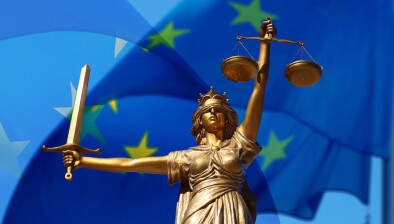Sanctions cases in wake of Ukraine war mark out 2022 in latest EU judicial statistics

EU sanctions were the focus of more than one in 10 cases brought to the General Court of the European Union last year in the context of Russia’s war in Ukraine, according to new figures.
A total of 1,710 cases were brought to the two courts of the Court of Justice of the European Union (CJEU) in 2022, remaining at a “very high level” for a fifth consecutive year, the latest judicial statistics release states.
The Court of Justice and the General Court completed 1,666 cases in 2022, in line with the recent average.
Koen Lenaerts, president of the CJEU, said: “The institution is being called upon more than ever before to adopt judicial decisions on sensitive matters.
“Whether on preserving the values intrinsic to the rule of law, protection of the environment, combating discrimination, protection of privacy and personal data, enforcing competition rules against digital giants, or protection for consumers, the decisions of the Court of Justice and of the General Court are directly affecting the major issues of today’s world.”
Of the 904 cases brought to the General Court, 11.4 per cent involved restrictive measures (i.e. sanctions), up from 4.8 per cent in 2021 and three per cent in 2020.
There was also an increase in cases concerning state aid rules, with 68 cases brought in 2022 compared with 46 in 2021 and 42 in 2020. There was a reduction in the areas of intellectual property (270, compared to 308 in 2021) and staff cases (66, compared to 81 in 2021).
The highest number of requests for a preliminary ruling came from the German courts (98), followed by the Italian (63), Bulgarian (43), Spanish (41) and Polish (39) courts.
Marc Van der Woude, president of the General Court, said: “In view of the war in Ukraine and the international context which continues to be shaped by greater pressures, and of recent legislative developments (the regulation of digital giants, the rules governing State aid, in particular in the field of taxation and in the energy and environmental sectors, the protection of personal data…
“We could see greater scrutiny of the legality of the acts of the EU institutions. Make no mistake: the General Court is fully aware of its responsibilities and will organise itself in order to meet them.”










